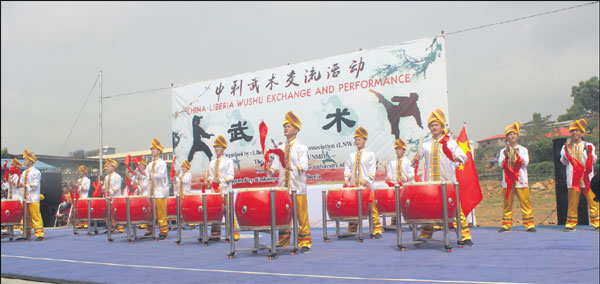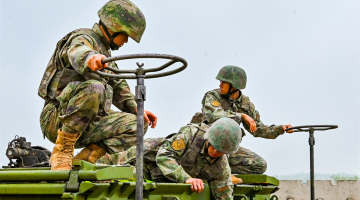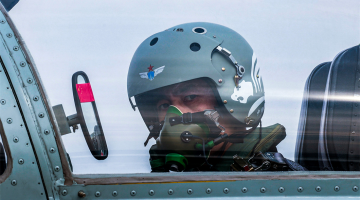Chinese United Nations peacekeepers were a "blessing" for Liberia, helping the country restructure its security architecture and leaving the country in a good position to maintain and improve its security sector, says Steve Zargo, a Liberian senator.
Zargo, a veteran security expert and now chairman of the Liberian Senate's Standing Committee on Security and Intelligence, says the expertise and logistical support given by the Chinese peacekeepers has affected every component of the country's security sector.
"I think the contribution of the Chinese peacekeepers to Liberia will forever be remembered," he says. "The Chinese contribution remains indelible on the lives of those of us who worked with national security institutions."

He says that although Liberia's biggest foreign partner in the security sector has been the United States, "the Chinese peacekeeping force was very instrumental in strengthening the capacity of our agriculture and engineering battalions of our Army to the extent that most of the fleets that you see the Army using to convey troops were donated by the Chinese peacekeepers."
Chinese peacekeepers ended their mission in Liberia on March 1, when members of the 19th peacekeeping force, the last serving in the West African nation, began returning home.
The last of the troops consisted of an 11-member transportation detachment and an 80-member engineering team.
In December 2003, China sent its first peacekeeping force of 558 members to help restore stability to Liberia, which had been embroiled in two back-to-back civil conflicts, in which more than 200,000 people died and around 2.5 million were displaced.
While serving in the UN mission for 13 years in Liberia, the Chinese "blue helmets" surveyed and repaired 7,500 kilometers of road and built and maintained 69 bridges, while the medical detachment treated more than 50,000 cases.
However, it was the support to the security sector that Zargo values most, and he says it has strengthened the bond between the militaries of the two nations.
"The training that we acquired from them leaves a kind of institutional memory that remains alive and stronger," he says.
Among the military and paramilitary officials who acquired advanced skills training in China was private security consultant Peter Zazay, who served as deputy commissioner of Liberia's immigration services.
Zazay spent a month at Zhejiang Police College in Hangzhou, Zhejiang province, learning about immigration entry and exit administration.
"Before me, there were several others Liberians from the immigration service, the national police, the drug enforcement agency and other security groupings in the country that benefited from the advanced training," he says.
"The Chinese (peacekeepers) were very much innovative in helping our security sector by providing medical support and training to the immigration service, and even conducting free medical services as well."
They supported the security sector in terms of logistics and training support to the Liberia Immigration Service, the armed forces of Liberia and the police.
The logistics support was even used during the election period to transport polling materials to hard-to-reach areas and helped ensure that Liberia's democracy remained on track, Zazay says.
"Those things that they gave us brought added value to the service and reduced the pressure on government to purchase these logistics, and it was able to impact our work on a very large scale," he recalls. "Indeed, the Chinese 'blue helmets' were a force for good in bringing our country's security sector back on track."
Meanwhile, Senator Zargo says sustaining the bond between the two nations will be fruitful for sustaining world peace and development.









